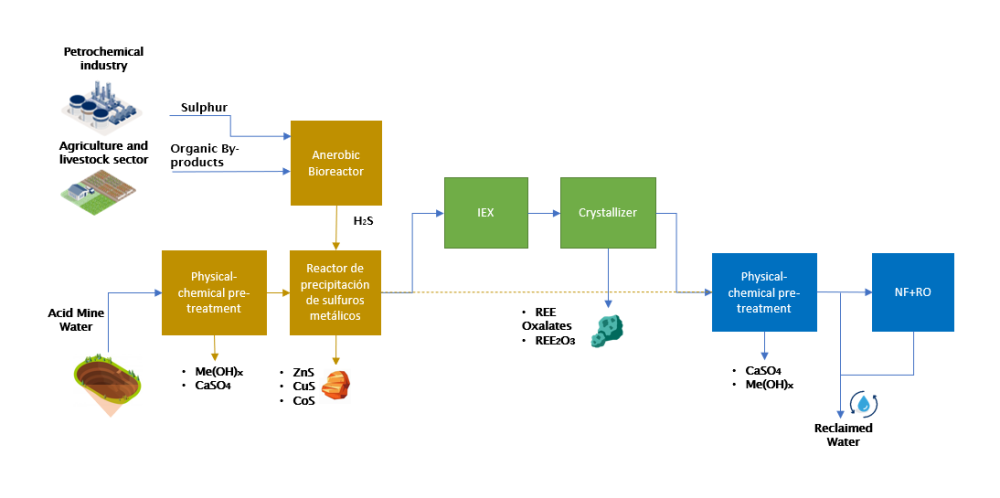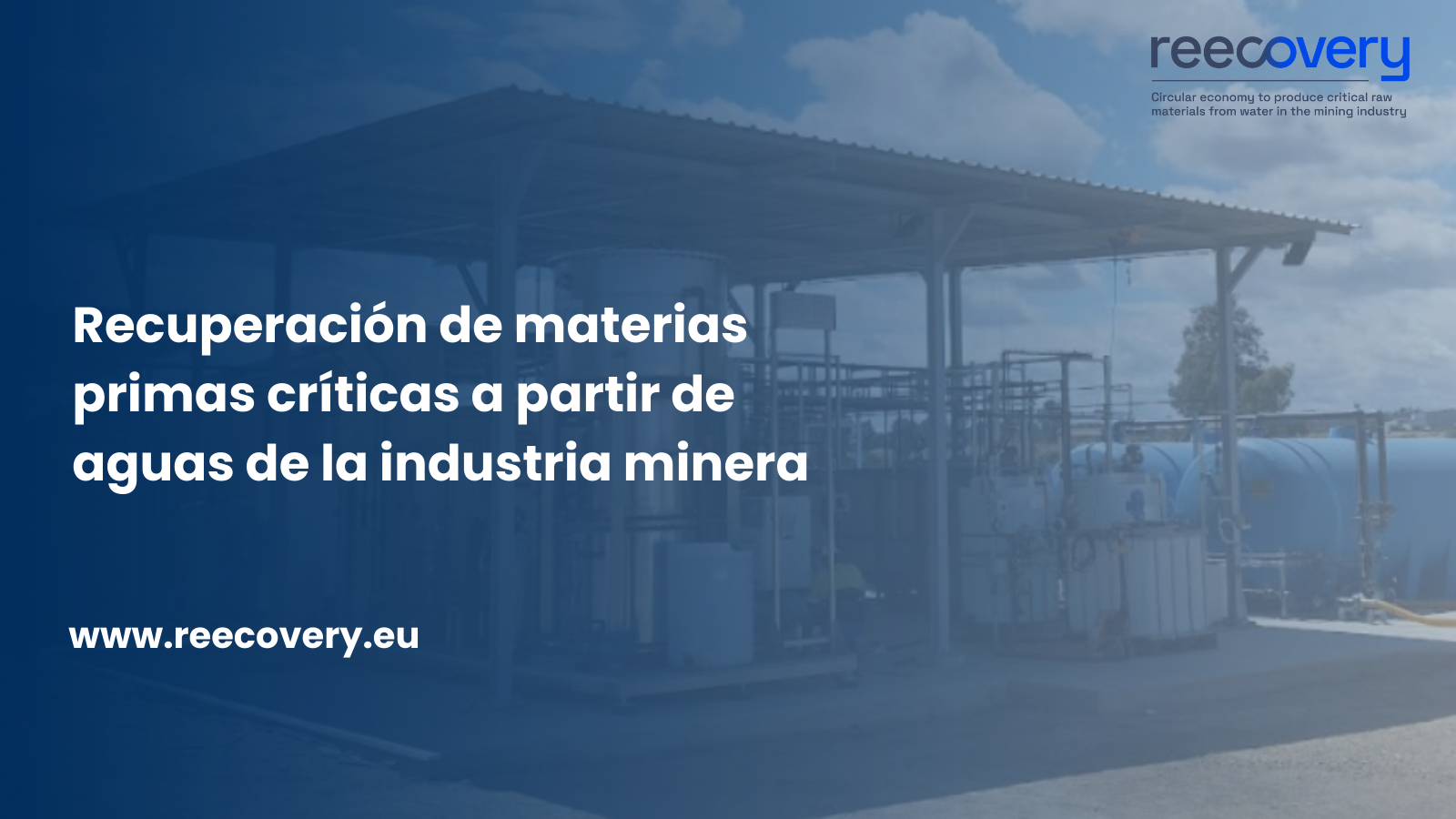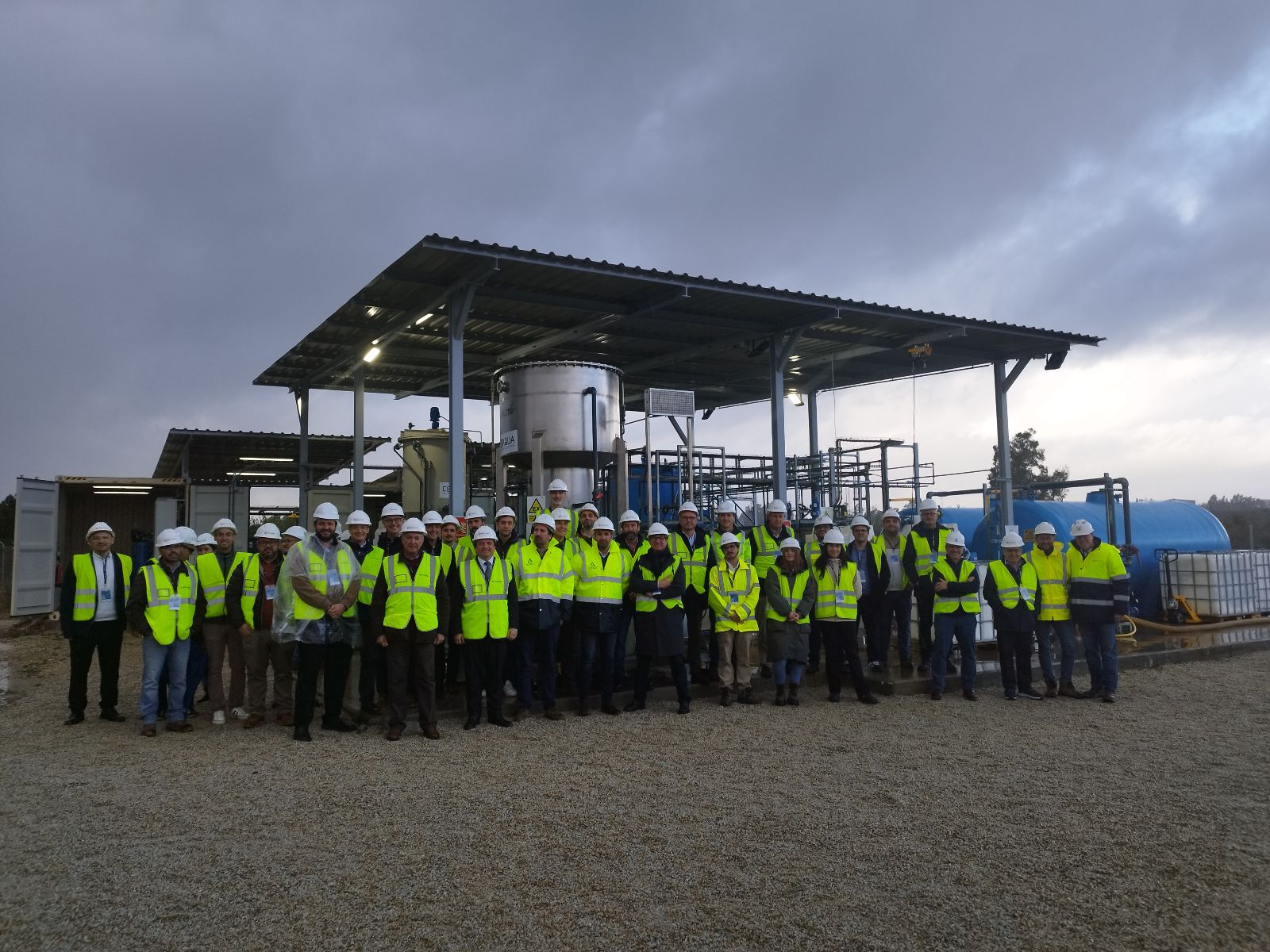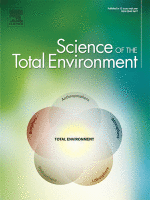#01 | REECOVERY project: A sustainable and circular approach to the management of contact water from mining liabilities
The Iberian Pyritic Belt is one of the most important metallogenic regions in the world, and its mines have been exploited since prehistoric times. Important civilizations, such as the Romans, took advantage of its metals, developing important industrial complexes. The Pyritic Belt extends from the province of Seville, at its eastern end, to the Portuguese coast, with Lousal at the western end.
Industrial development began in the mid-19th century, with the arrival of mainly English and French companies. It then began to develop an important mining activity, both subway and open pit, which left old cuts and deposits of mining tailings, with the potential to generate acidic water in contact with sulfides. It is estimated that historically, there were about 100 mining operations in operation, in a social and legal context that was very different from the current one.
In 2015, the Junta de Andalucía awarded by the international public tender the mining concession of the “Aznalcóllar Zone” in the province of Seville to Minera Los Frailes. The award carries with it the management and environmental remediation of the former liabilities. Minera Los Frailes has developed a project that integrates the environmental remediation of the site supported by the exploitation of the remaining resource in the Los Frailes primary sulfide deposit.

Northwestern tailings dump; 2. Eastern tailings dump; 3. Los Frailes cut; 4. Aznalcóllar cut; 5. Restored old tailings dam; 6.
The mining complex has facilities and old waste deposits from historical activity that are considered environmental liabilities. The management and elimination of these environmental liabilities are part of the future mining project.
The European research project REECOVERY involves the evaluation of an alternative and/or complementary process to the conventional treatment of contact water from mining liabilities, within the framework of the circular economy, through the recovery of critical raw materials such as copper, zinc and cobalt sulfides, as well as rare earths. This circular orientation will be reinforced by the use of by-products from other industrial activities as process inputs.
It is therefore an innovative process for the management of the environmental liabilities from which the concession starts, which would allow the valorization of the contact waters that currently accumulate in Corta de Aznalcóllar. Therefore, the REECOVERY project offers a replicable alternative for other former mining liabilities that generate acid drainage. In order to evaluate the industrial scalability of the process and technologies of the REECOVERY project, it is planned to build a pilot plant of the three units that make up the treatment train, which will be in operation for approximately 12-14 months after its implementation and start-up.

The system will consist of 3 process blocks (or units) (Figure 2):
- Block 1: Metallic sulfide recovery unit.
- Block 2: Rare earths recovery unit.
- Block 3: Contact water recovery and valorization unit.
With this project, the consortium coordinated by Minera Los Frailes, is committed to research and innovation in technologies that facilitate the transition to a circular economy model that allows a paradigm shift in the management of acid mine drainage.
More news

Discover the results of REECOVERY in its final video
REECOVERY has published its final video, in which you will be able to learn about the REECOVERY solution and discover... View Article

REECOVERY comes to an end after succeeding in recovering critical raw materials from water in the mining industry
The European REECOVERY project, which over three years has developed and validated a system for recovering critical raw materials such as... View Article

New papers published in the context of the REECOVERY project
Alexandra Roa, PhD Student at UPC, together with Julio López and Jose Luis Cortina, Researcher and Chemical Engineering Professor at... View Article

